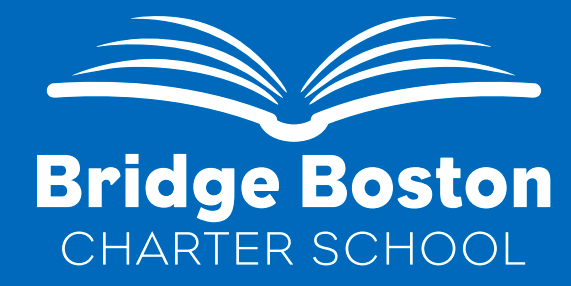Special Education
At Bridge Boston, we are committed to creating a welcoming and supportive environment for all students, including those with disabilities. Our special education program ensures that every child receives the necessary support to succeed academically and socially, while fostering an inclusive community where each student’s identity is respected and valued.
We focus on helping students build self-advocacy skills, empowering them to speak up for themselves and actively participate in their education, while ensuring access to high-quality educational opportunities for success. Our special education team collaborates with general education teachers to create Individualized Education Plans (IEPs) for eligible students, which are legally required documents that outline the specific support and services a student needs to succeed in schools. Students are actively involved in setting and tracking their educational goals, ensuring they are part of the process.
Special education services may be delivered through inclusion in the general education classroom or through separate, individualized instruction tailored to each student’s needs. Eligible students may also receive related services such as speech and language therapy, physical therapy, occupational therapy, behavior consultation, and counseling—all contributing to a robust educational experience.
At Bridge, we use evidence-based methods to help students improve in areas of need while ensuring they can engage with the same curriculum as their peers. We track student progress through data collection and ongoing monitoring, making adjustments as needed to support continued growth. Our goal is to provide the right balance of challenge and support for every student.
We are dedicated to fostering an environment where all students feel safe, valued, and motivated to reach their full potential, with ample opportunities for growth and success.
Special Education Parent Advisory Committee
What is SEPAC?
SEPAC is the acronym for Special Education Parents Advisory Council. Each school district is required under Massachusetts General Law to have a parent advisory council. Bridge Boston has over 100 children on individualized education plans (IEPs), Section 504 Accommodations, or in out-of-district placements. SEPAC is a place where families can connect, learn, and advocate together.
When + where are the meetings?
Bridge’s SEPAC meets four times per year, aligned with Parent Advisory Council meetings to create our PAC+ model. This structure is designed to reduce barriers for families by combining meetings and ensuring everyone has access to a well-rounded experience. SEPAC-specific sessions are coordinated by the Special Education Dean of Coaching and Intervention in partnership with SEPAC family leaders. Families can join in person or on Zoom, and all resources are posted publicly afterward. In addition to community-wide announcements, Case Managers extend personal invitations to their scholars’ families through TalkingPoints and other family outreach channels.
Click here to see the presentation from our meeting on Thursday, 11/20.
Click here to see the presentation from our meeting on Thursday, 1/22.
The mission of the Bridge Boston SEPAC:
To forward the understanding of, respect for, and support of all children with disabilities.
Promote a network of parents of children with disabilities, and provide a forum for the parents to share information.
Advise the Special Education Dean of Coaching & Intervention (SE DCI) regarding the operation and development of special education programs, parent and teacher training needs, and to help develop policy.
Promote communication between parents, staff and administration.
Promote communication and programs within the community that seek to encourage understanding, acceptance and inclusion of the children with disabilities.
Host learning opportunities for families throughout the year on topics related to special education and student success.
Contact Information:
To contact SEPAC directly, email our Special Education Dean of Coaching & Intervention Abbey Schuessler.
Other helpful resources:
DESE’s Office of Special Education Planning and Policy has released an e-learning module to highlight Massachusetts' special education systems. Click here to check it out: A Parent's Guide to Special Education



